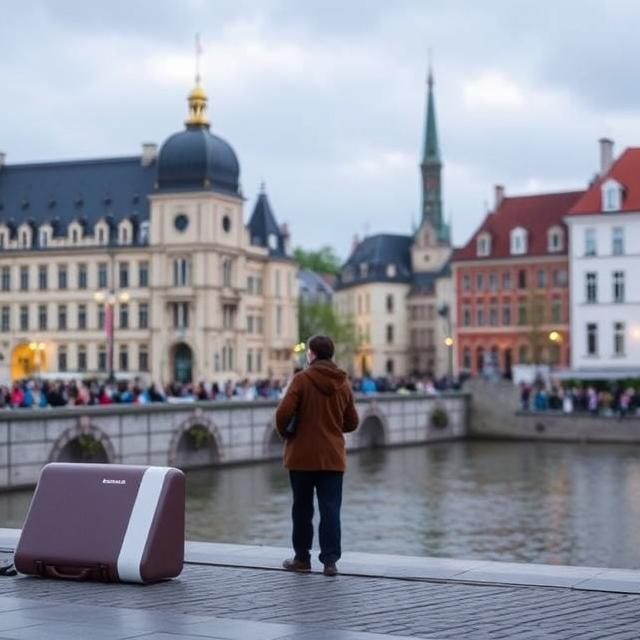Traveling around the world is a dream for many, but the expense can seem overwhelming. However, with a little planning, flexibility, and resourcefulness, you can explore multiple countries and continents without blowing your budget. Here are some practical tips to help you travel around the world with minimal costs.
1. Be Flexible with Your Travel Dates and Destinations
Flexibility is one of the most important factors when it comes to saving money on travel. Flights can fluctuate greatly depending on the time of year, day of the week, and even time of day.
- Use Fare Comparison Websites: Platforms like Google Flights, Skyscanner, and Momondo allow you to compare airfares across multiple airlines and provide you with flexible date options. This helps you find the cheapest days to fly.
- Travel During Off-Peak Seasons: Avoid traveling during holidays or school breaks when flights and accommodation prices tend to peak. Instead, aim for shoulder seasons (just before or after peak season), when you can enjoy good weather and lower prices.
- Be Open to Multiple Destinations: If you have a flexible itinerary, use tools like Skyscanner’s “Everywhere” feature to see the cheapest destinations from your current location.
2. Use Budget Airlines and Alternative Airports
Budget airlines are a great way to cut down on your travel costs, especially for regional or short-haul flights.
- Look for Budget Airlines: Consider flying with budget carriers like Ryanair, EasyJet, Southwest, or AirAsia, which often offer significantly cheaper flights compared to full-service airlines.
- Use Alternative Airports: Many cities have more than one airport. Flying into a secondary airport may save you money, though you may need to budget for additional transportation to your final destination.
3. Book Flights in Advance and Set Alerts
Booking flights in advance can help you snag the best deals before prices go up. It’s also helpful to monitor flight prices over time to find the best deal.
- Set Price Alerts: Many flight comparison websites allow you to set price alerts for specific routes. You’ll be notified when prices drop, so you can book at the lowest price.
- Book Early: While last-minute deals can sometimes pop up, booking flights several months in advance generally ensures lower prices, especially for long-haul flights.
4. Travel Overnight
Overnight travel can save you both money and time. By taking overnight buses, trains, or flights, you can eliminate the cost of a night’s accommodation while still covering long distances.
- Overnight Trains or Buses: Many countries, especially in Europe, offer affordable overnight train services. These trains often have sleeper cars or reclining seats, allowing you to rest while you travel. Long-distance buses, particularly in Southeast Asia and South America, also offer overnight services.
- Red-Eye Flights: If you’re flying long distances, booking a red-eye flight (late-night or early-morning flights) can often be cheaper than flights during the day.
5. Use Public Transportation
Public transportation is often the cheapest and most efficient way to get around when you’re traveling, especially in major cities.
- Metro, Trains, and Buses: Most cities around the world have reliable and affordable public transit systems. Invest in transport passes or day tickets that allow unlimited travel within a set time frame, saving you money on single journeys.
- Use Ride-Sharing Apps: While taxis can be expensive, ride-sharing apps like Uber and Lyft are usually cheaper alternatives. However, be cautious in cities with high surge pricing.
6. Opt for Budget Accommodation
Accommodation can be one of the largest expenses on any trip, but there are many ways to find budget-friendly lodging options.
- Hostels: Hostels are a classic choice for budget travelers. They offer shared dorm rooms at affordable prices, and many also provide private rooms at a lower cost than hotels.
- Airbnb: You can find private rooms or entire apartments for a fraction of the price of hotels, especially if you’re booking for longer stays. Airbnb often offers more local, immersive experiences.
- Couchsurfing: This platform connects travelers with locals who offer free places to stay. While not always a long-term option, it’s a great way to save on accommodation and meet new people.
- Camping or Glamping: In certain regions, camping or “glamping” (luxury camping) can be an affordable and unique alternative to traditional accommodation.
7. Eat Like a Local
Food is another major expense when traveling, but there are ways to enjoy great meals without spending a lot of money.
- Street Food: Street food is often cheap, delicious, and offers an authentic taste of local cuisine. From tacos in Mexico to pad Thai in Thailand, street food can be a filling and flavorful way to experience a destination.
- Markets and Grocery Stores: Local markets and grocery stores offer fresh, inexpensive ingredients if you want to cook your own meals. Many hostels also have kitchen facilities where you can prepare simple meals.
- Avoid Tourist Traps: Restaurants near major tourist attractions tend to be overpriced. Walk a few blocks away to find cheaper, locally owned eateries where you can enjoy traditional dishes for less.
8. Use Travel Rewards and Points
Frequent travelers can benefit from using credit cards that offer travel rewards, which can help offset some of your travel costs.
- Sign-Up Bonuses: Many travel credit cards offer generous sign-up bonuses, which can be redeemed for flights, hotel stays, or car rentals. Make sure to pay off the card in full each month to avoid interest charges.
- Frequent Flyer Miles and Hotel Loyalty Programs: Join frequent flyer programs with airlines or hotel chains to accumulate points. Over time, you can redeem these points for free flights, upgrades, and accommodation.
- Use Points for Long-Term Travel: Some loyalty programs, like the Chase Ultimate Rewards program, allow you to transfer points to different airlines or hotel partners, making it easier to book long-term trips.
9. Work or Volunteer Abroad
Working or volunteering abroad is an excellent way to travel on a budget, as it often includes free accommodation and meals in exchange for your time and skills.
- Work Exchanges: Platforms like Workaway, WWOOF (World Wide Opportunities on Organic Farms), and HelpX offer work exchanges where you can trade your labor for food and shelter. These opportunities are common in areas like agriculture, hospitality, and teaching English.
- Teach English Abroad: Many countries, particularly in Asia, offer opportunities to teach English in exchange for free housing and a modest salary. Programs like TEFL (Teaching English as a Foreign Language) can help you find jobs.
10. Take Advantage of Free Activities
You don’t need to spend money on expensive tours or attractions to enjoy a destination. Many cities and countries offer a wide range of free activities and experiences.
- Free Walking Tours: Many cities offer free walking tours, often led by local guides who work for tips. These tours are a great way to learn about the history and culture of a place while getting to know the city.
- Free Museums and Attractions: Some museums offer free admission on certain days of the week, and many cities have parks, gardens, or historic sites that you can visit for no cost.
- Nature and Outdoor Adventures: Hiking, swimming, and exploring natural wonders like beaches, mountains, and national parks are often free or require only a small entrance fee.
11. Use Travel Hacking Techniques
“Travel hacking” involves finding creative ways to maximize travel deals and minimize costs, such as booking cheaper flights, using points, or utilizing special promotions.
- Error Fares and Flash Sales: Watch for error fares (when airlines make mistakes in pricing) and flash sales, which often offer discounts of up to 70% on flights.
- Book Multi-City Tickets: Many airlines offer cheaper rates for booking multi-city flights or round-the-world tickets. These can allow you to visit several destinations at once without paying for multiple one-way flights.
- Use Airline Alliances: If you’re traveling to multiple countries, consider using airline alliances like Star Alliance or SkyTeam, which offer routes to many destinations under one ticket. This can often result in lower costs than booking separate flights with different airlines.
12. Travel Slowly
One of the best ways to reduce your travel costs is to take your time. Traveling slowly allows you to stay in places longer, reducing the frequency of expensive flights and accommodation.
- Stay Longer in One Place: Instead of hopping from city to city, slow down and spend more time in each destination. This allows you to get better deals on accommodation and take advantage of longer-term discounts.
- Use Local Transport: By spending more time in one place, you can explore the region more easily and affordably using local buses, trains, or bikes.
13. Pack Light
Packing light not only saves you from excess baggage fees, but it also allows you to be more flexible and mobile while traveling.
- Avoid Extra Baggage Fees: Many budget airlines charge for checked luggage, so try to pack everything in a carry-on bag. This will save you money and make it easier to travel between destinations.
- Pack Versatile Clothing: Choose clothing that can be mixed and matched to create different outfits, and consider packing lightweight, quick-drying fabrics.





